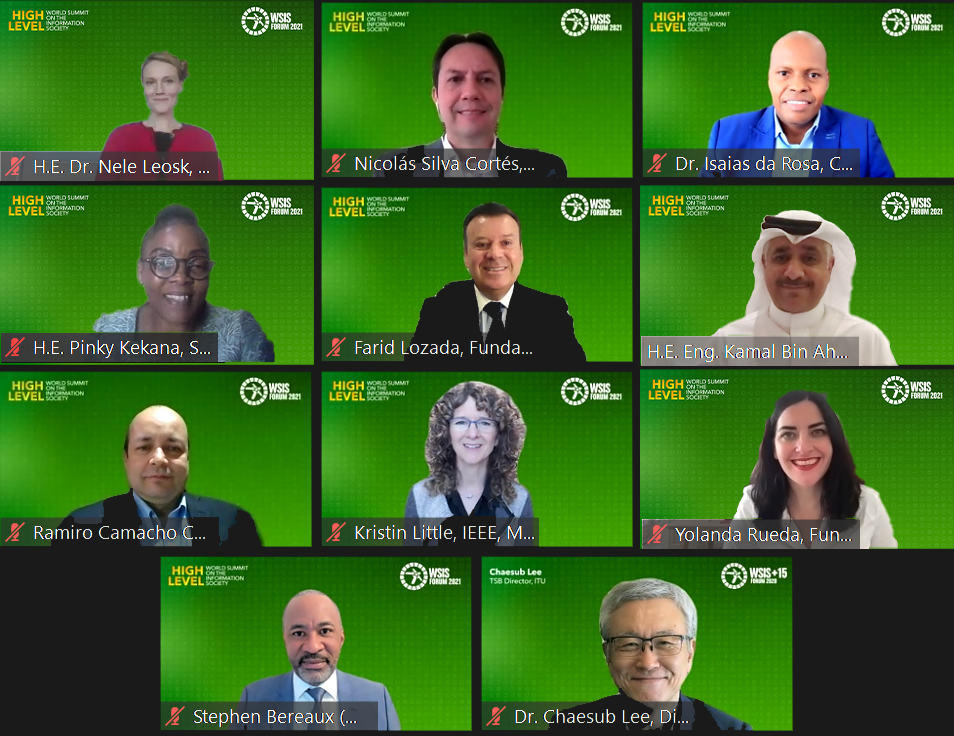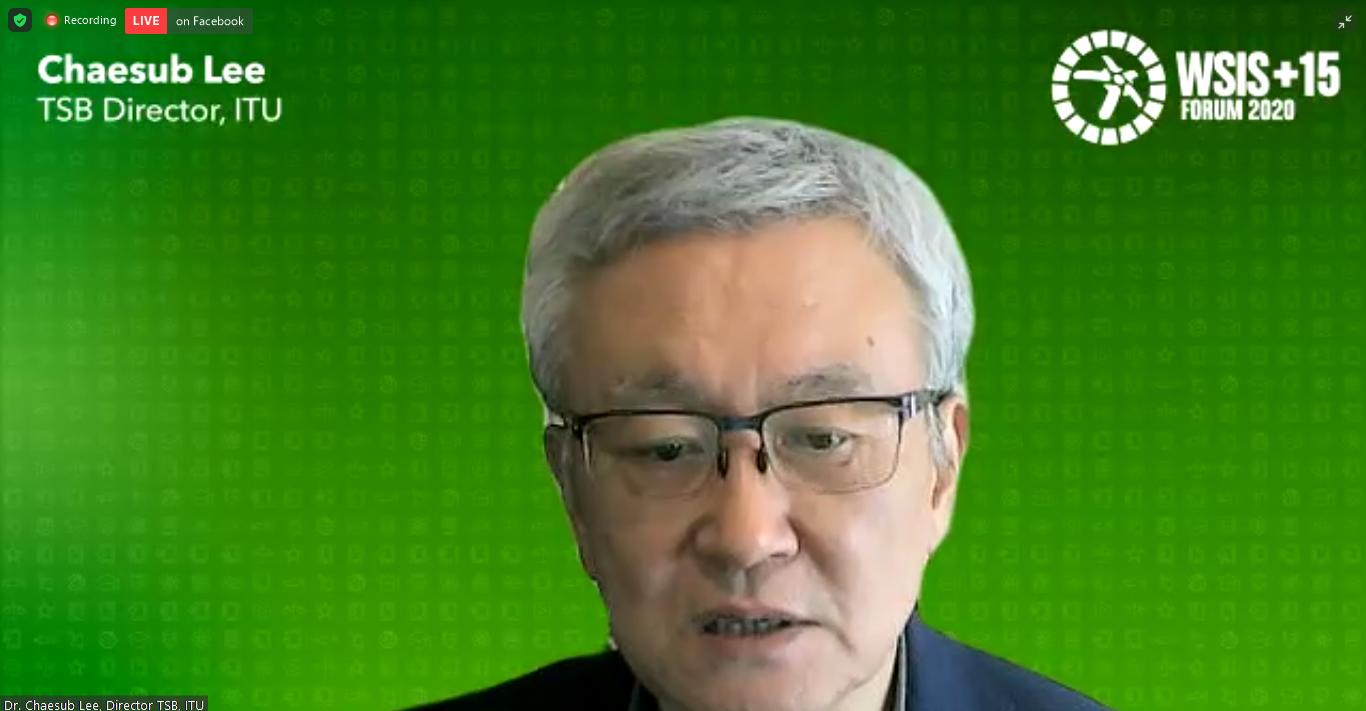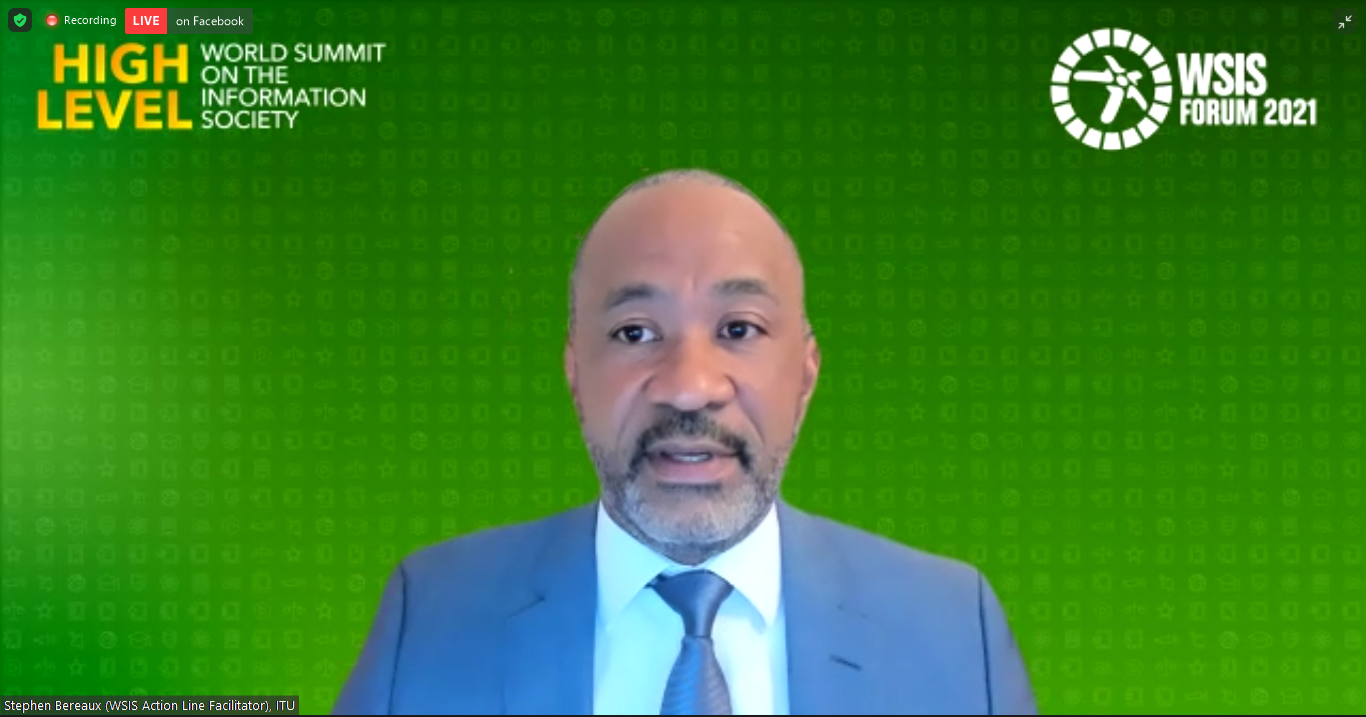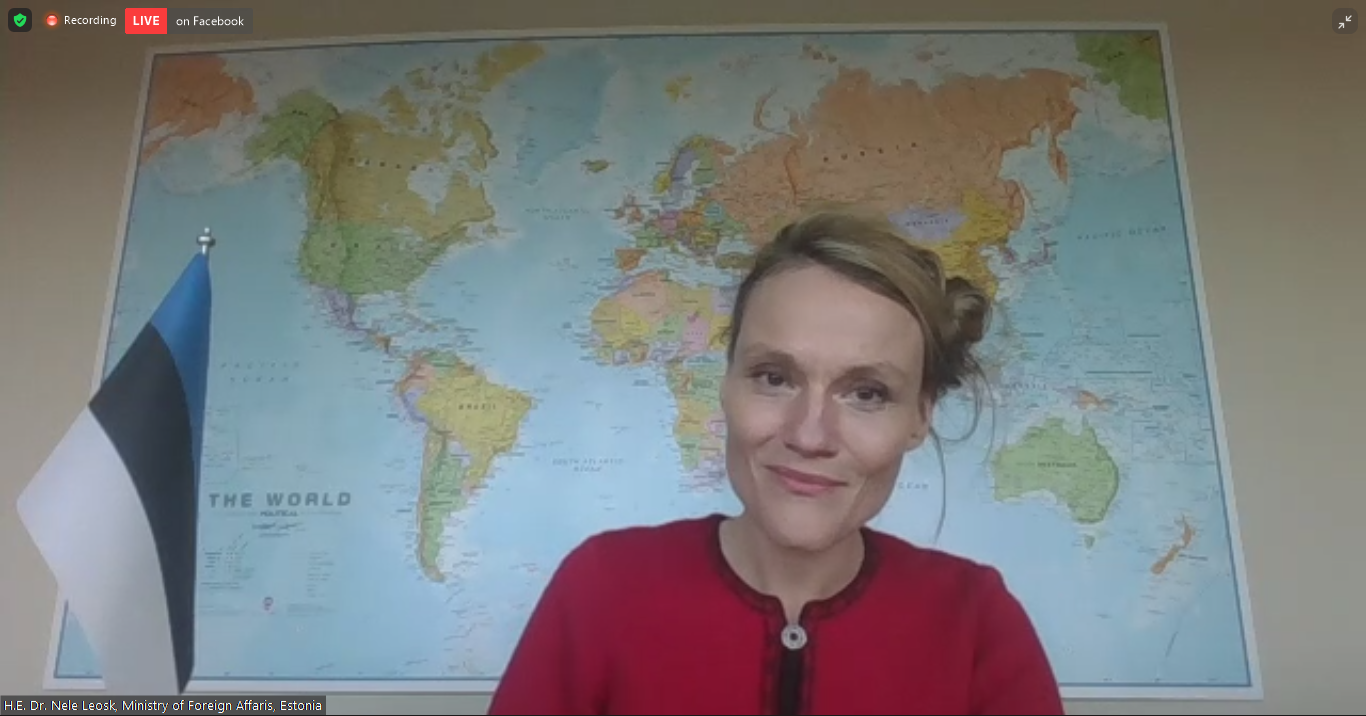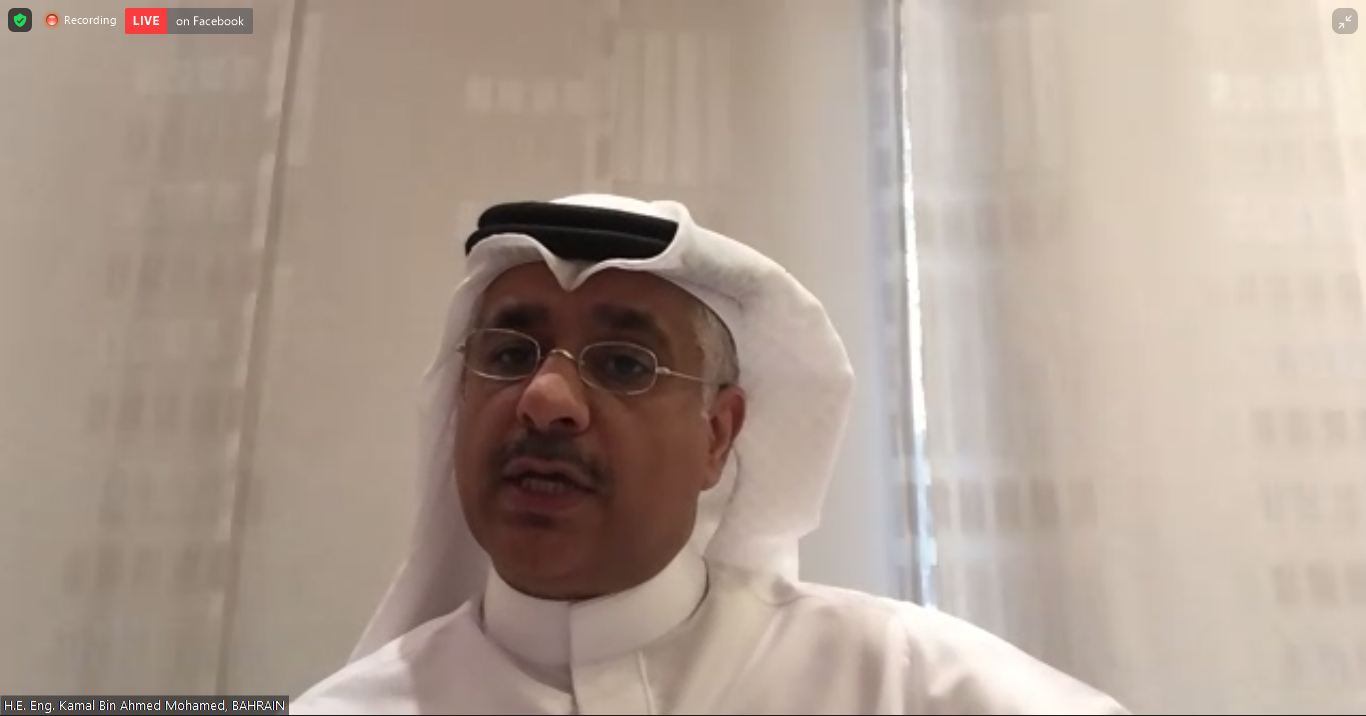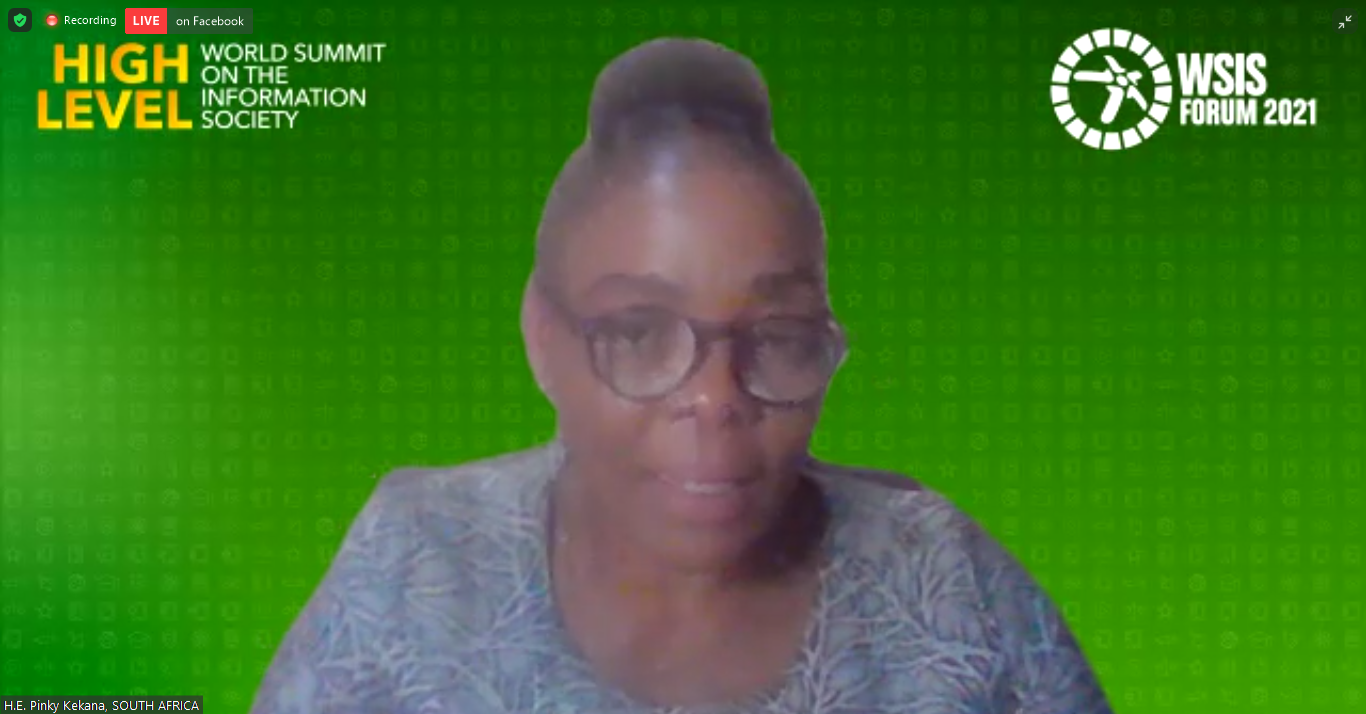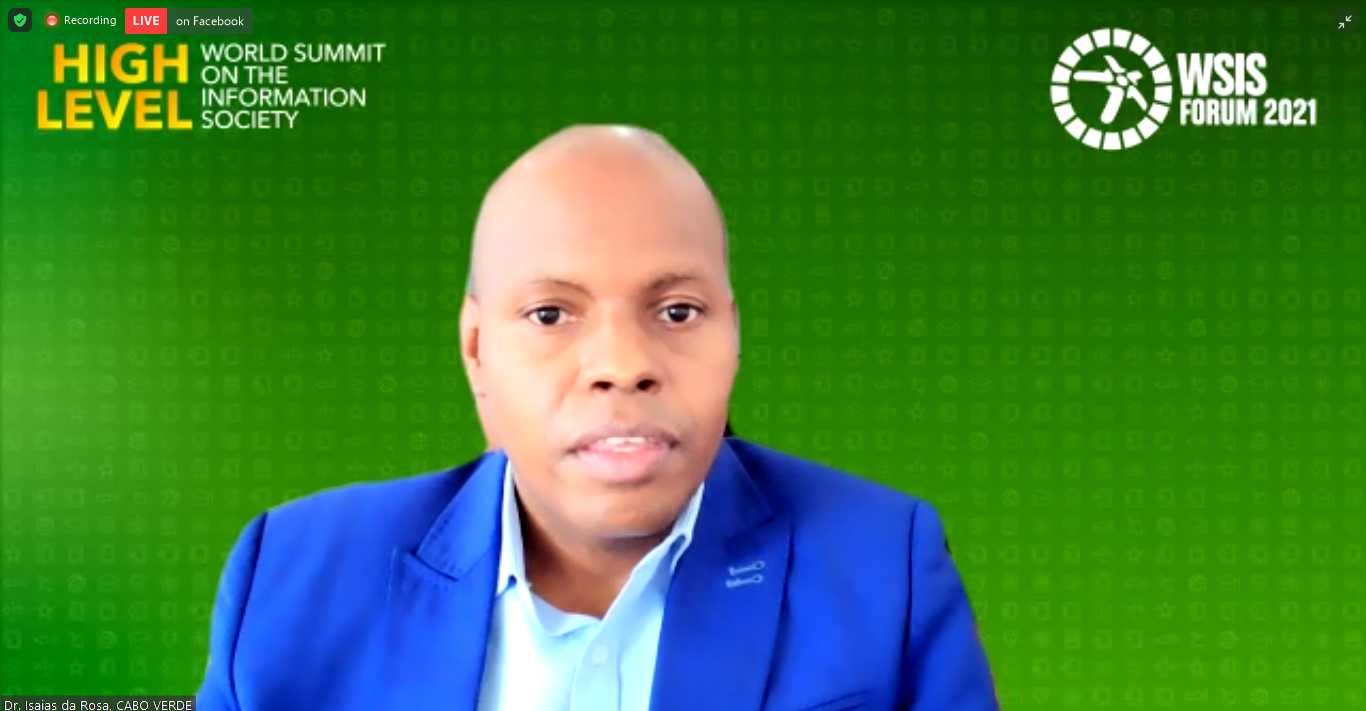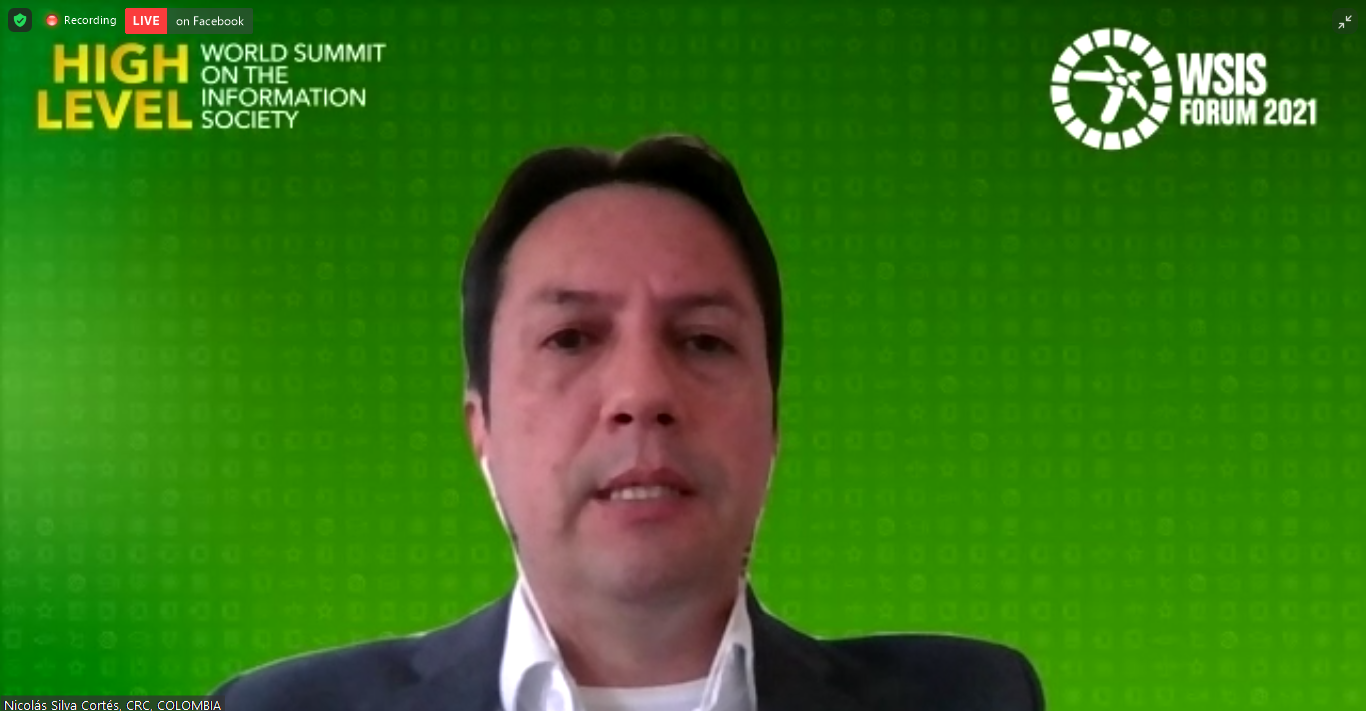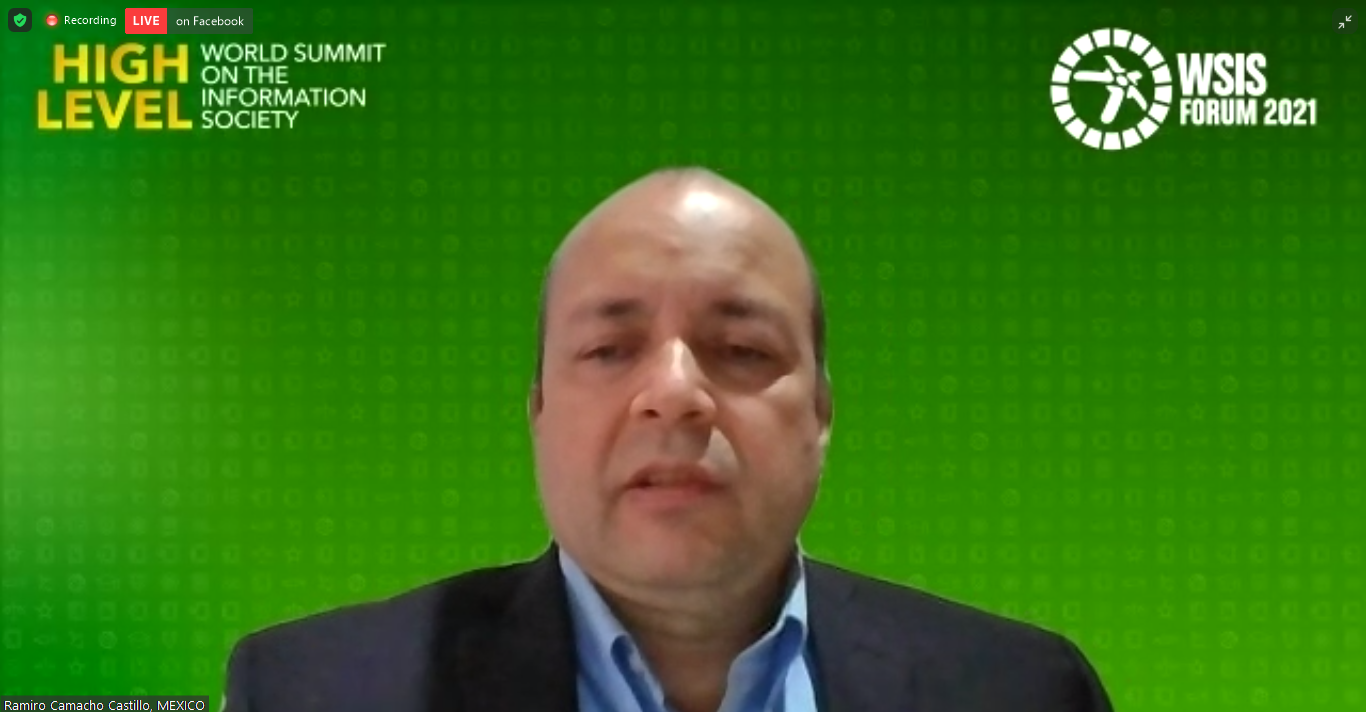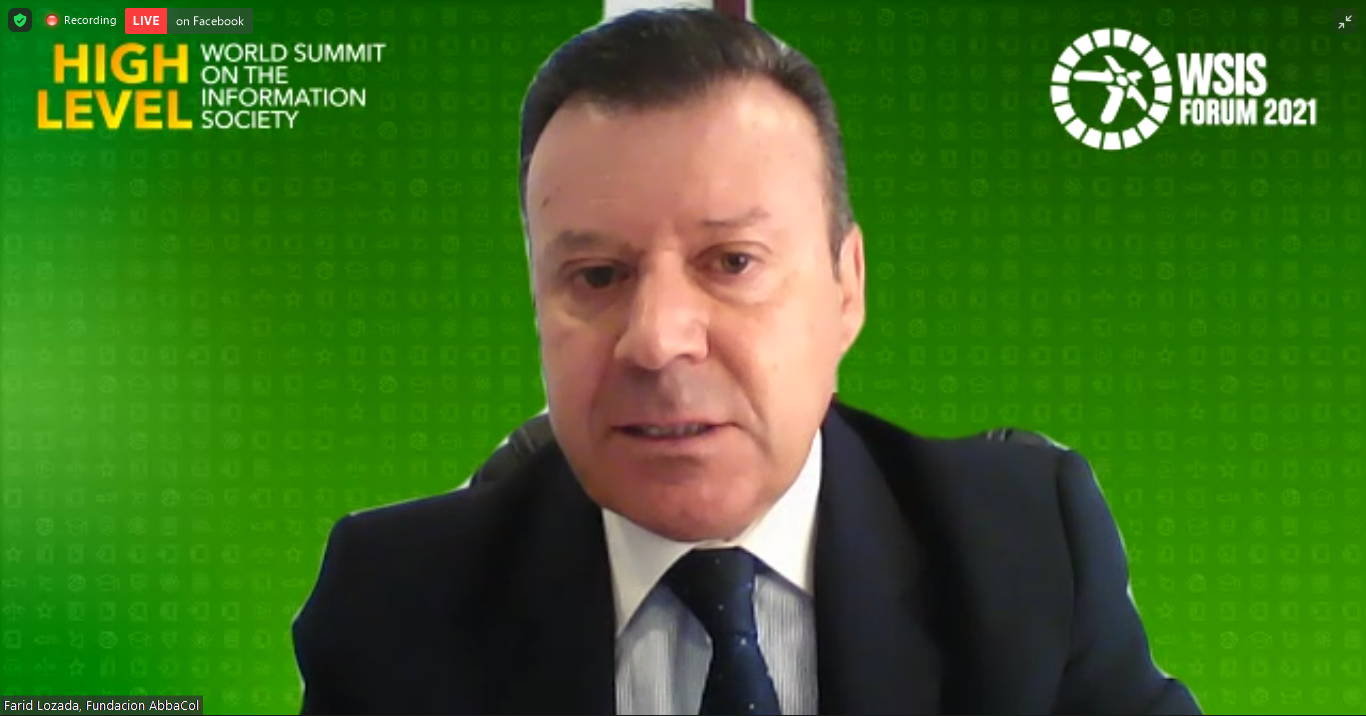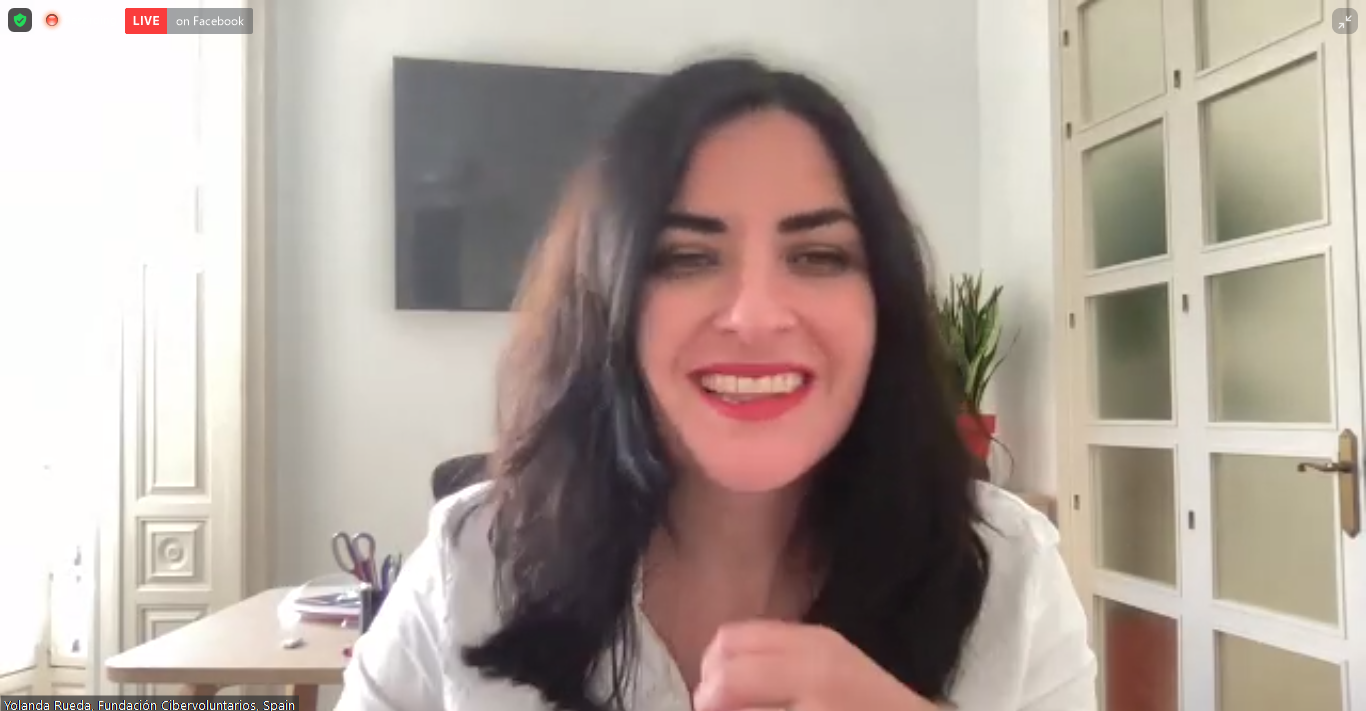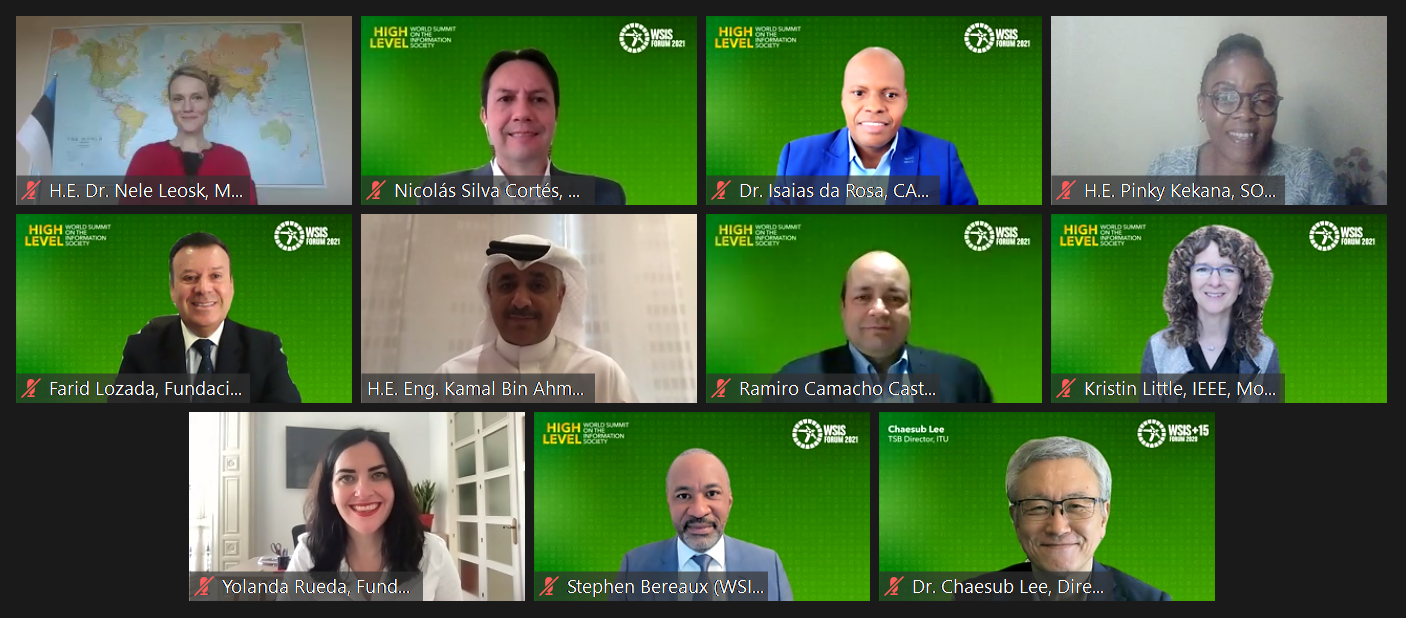High-Level Policy Session 9 : WSIS Action Lines and 2030 Agenda / Enabling Environment
WSIS
Session 172
WSIS Action Lines and 2030 Agenda
The World Summit on the Information Society (WSIS) was a ground-breaking Summit, held in recognition of the vast, sweeping changes digital technologies would wreak on our society, economy and way of life. The Summit brought together many different players in recognition of a multi-stakeholder model for the Internet and information society.
Since the adoption of the Sustainable Development Goals (SDGs) the WSIS Process has been aligned with the 2030 Agenda for Sustainable Development. The effective implementation of the WSIS Action Lines can help accelerate the achievement of the SDGs. To that end, the WSIS-SDG Matrix , developed by the UN Action line Facilitators, clearly shows the linkage between each Action line and the 17 SDGs and provides rationale for each. Since 2015, the agenda and outcomes of the annual WSIS Forum show clear linkages between the WSIS Action
Lines and SDGs.
The 2030 Agenda acknowledges that “the spread of information and communication technology and globalinterconnectedness has great potential to accelerate human progress, to bridge the digital divide and to develop knowledge societies, as does scientific and technological innovation across areas as diverse as medicine andenergy”. Bridging the digital gap and connecting the unconnected remain a serious challenge.
Enabling Environment
"An enabling environment at national and international levels is essential for the Information Society. ICTs should be used as an important tool for good governance.
The rule of law, accompanied by a supportive, transparent, pro-competitive, technologically neutral and predictable policy and regulatory framework reflecting national realities, is essential for building a people-centred Information Society. Governments should intervene, as appropriate, to correct market failures, to maintain fair competition, to attract investment, to enhance the development of the ICT infrastructure and applications, to maximize economic and social benefits, and to serve national priorities.
ICTs are an important enabler of growth through efficiency gains and increased productivity, in particular by small and medium sized enterprises (SMEs). In this regard, the development of the Information Society is important for broadly-based economic growth in both developed and developing economies. ICT-supported productivity gains and applied innovations across economic sectors should be fostered. Equitable distribution of the benefits contributes to poverty eradication and social development. Policies that foster productive investment and enable firms, notably SMEs, to make the changes needed to seize the benefits from ICTs, are likely to be the most beneficial."
Geneva Declaration of Principles, WSIS 2003, https://www.itu.int/net/wsis/docs/geneva/official/dop.html
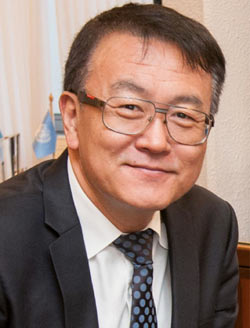
Dr. Chaesub Lee was elected Director of the ITU Telecommunication Standardization Bureau at the ITU Plenipotentiary Conference 2014 in Busan, Republic of Korea, and re-elected to this post for a second four-year term at the ITU Plenipotentiary Conference 2018 in Dubai, United Arab Emirates. Dr Lee has contributed ICT standardization for over 30 years, specializing in areas such as integrated services digital networks (ISDN), global information infrastructure (GII), Internet protocol, next-generation networks (NGN), Internet protocol television (IPTV) and cloud computing.
Within ITU Dr Lee served as Chairman of the ITU Focus Group on Next-Generation Networks (NGN) to address the growing need for international standards for NGN, including service requirements, functional architecture, mobility, security and Quality of Service (QoS). He was also Vice-Chairman of the ITU Focus Group on IPTV which worked to coordinate and promote the development of IPTV standards. He acted as Vice-Chairman of ITU-T Study Group 13 (Future networks and cloud) from 2001 until 2008, becoming Chairman of that group in 2009. ITU-T Study Group 13 develops standards for NGN, future networks, cloud computing, Internet of Things (IoT) and mobile telecommunications, to ensure their smooth international deployment.
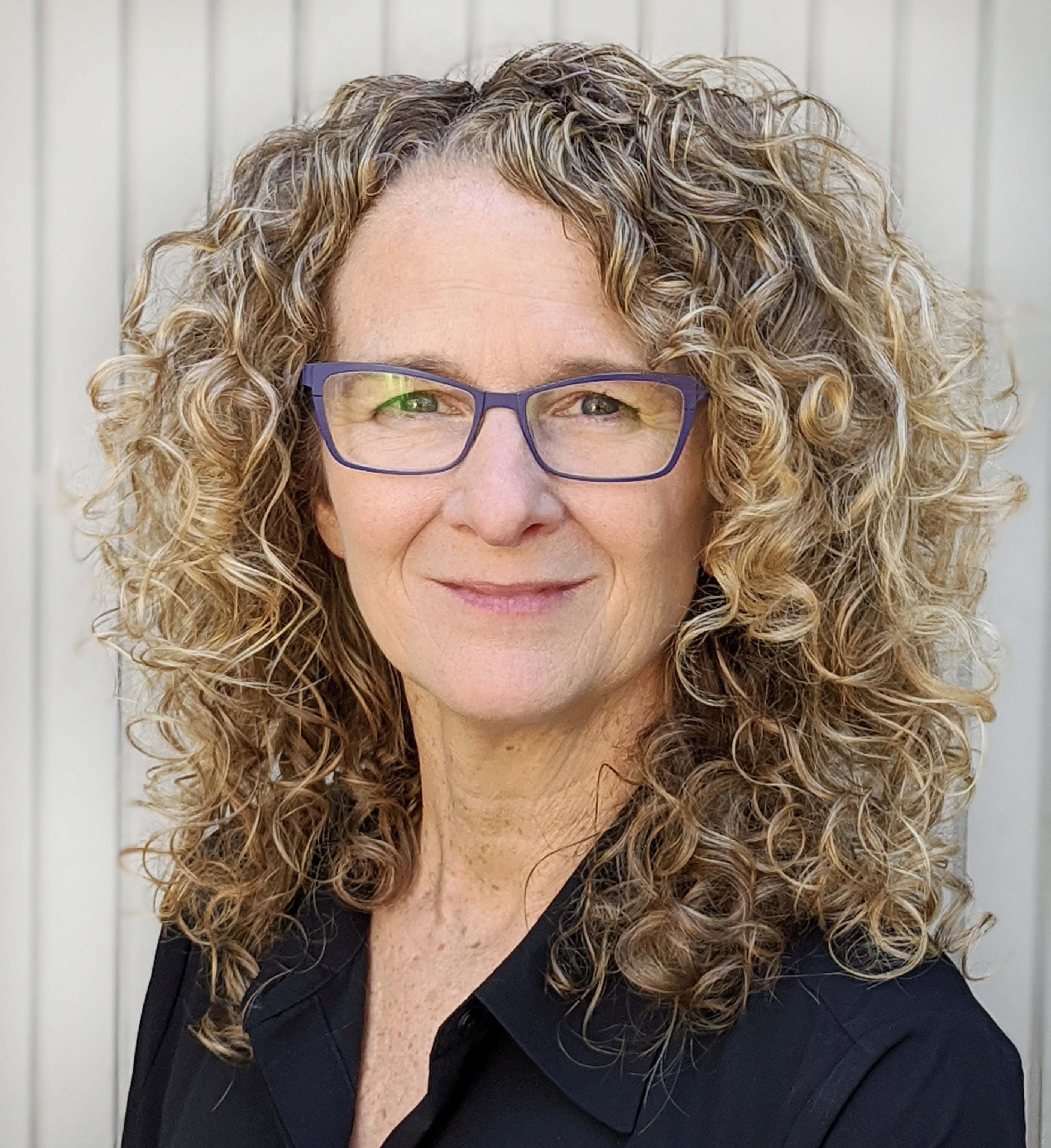
Kristin Little is a Senior Manager of Public Affairs at IEEE where she helps to facilitate mutual understanding between technologists and policymakers and build global communities that advance technology to benefit humanity.
Kristin has 15 years experience with the World Bank, designing, conducting, and contributing to field-based, mixed-methods evaluations of over $200B of investments. This work helped to help shape new policies and improve resource allocation in areas such as adoption of new technologies, infrastructure, disasters, water, cultural heritage, and social development.
In 2020 Kristin was appointed Digital Cooperation and Diplomacy Fellow by The People-Centered Internet -- a not-for-profit organization founded by Vint Cerf and Mei Lin Fung working to ensure the Internet is a positive force for good.
Kristin holds a bachelor’s degree in International Development Studies from UC Berkeley, and two master’s degrees from MIT—MCP (Urban Planning) and MArch (Architecture).
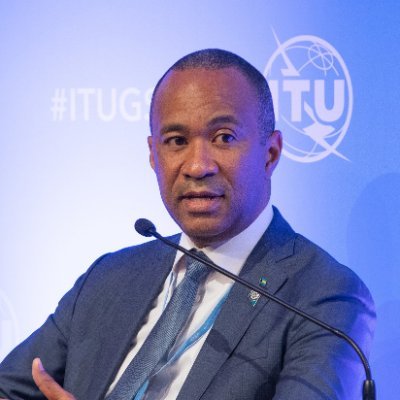
Stephen Bereaux is the Deputy to the Director of the ITU Telecommunication Development Bureau since 7 March 2020. Mr. Bereaux is an experienced regulator, with more than 20 years of executive and senior management experience in regulatory bodies in the Caribbean region. Prior to joining ITU, Mr Bereaux was Chief Executive Officer of the Utilities Regulation and Competition Authority (URCA), Bahamas which regulates the ICT and Electricity sectors, advises the Government on policies relating to those sectors, and represents The Bahamas at international sector related organisations such as the ITU.
Prior to joining URCA in 2010, Mr. Bereaux served in senior management roles at the Telecommunications Authority of Trinidad and Tobago (TATT) from 2004. Before becoming a Regulator, Mr. Bereaux, an Attorney by profession since 1996, practiced law at multinational firms based in London and Hong Kong, specialising in Information Technology and Telecommunications Law.
.jpg)
His Excellency Engineer Kamal bin Ahmed Mohamed was appointed Minister of Transportation in February 2012 and in December 2014 as Minister of Transportation and Telecommunications. He holds overall responsibility for Bahrain’s transport infrastructure covering policy, regulation and the development and delivery of projects to meet the Kingdom’s future transport needs, as well as the country’s postal services. He is also responsible for implementing policies and developing the telecommunications industry in the Kingdom.
He is currently a board member of the following organisations:
- Chairman of Gulf Air Group Holding Company
- Chairman of Bahrain Airport Company (BAC)
- Chairman of Gulf Aviation Academy (GAA)
- Chairman of National Space Science Agency (NSSA)
- Bahrain Economic Development Board (EDB)
- Bahrain Mumtalakat Holding Company (Mumtalakat)
- Minister responsible for the affairs of the Labour Fund (Tamkeen)
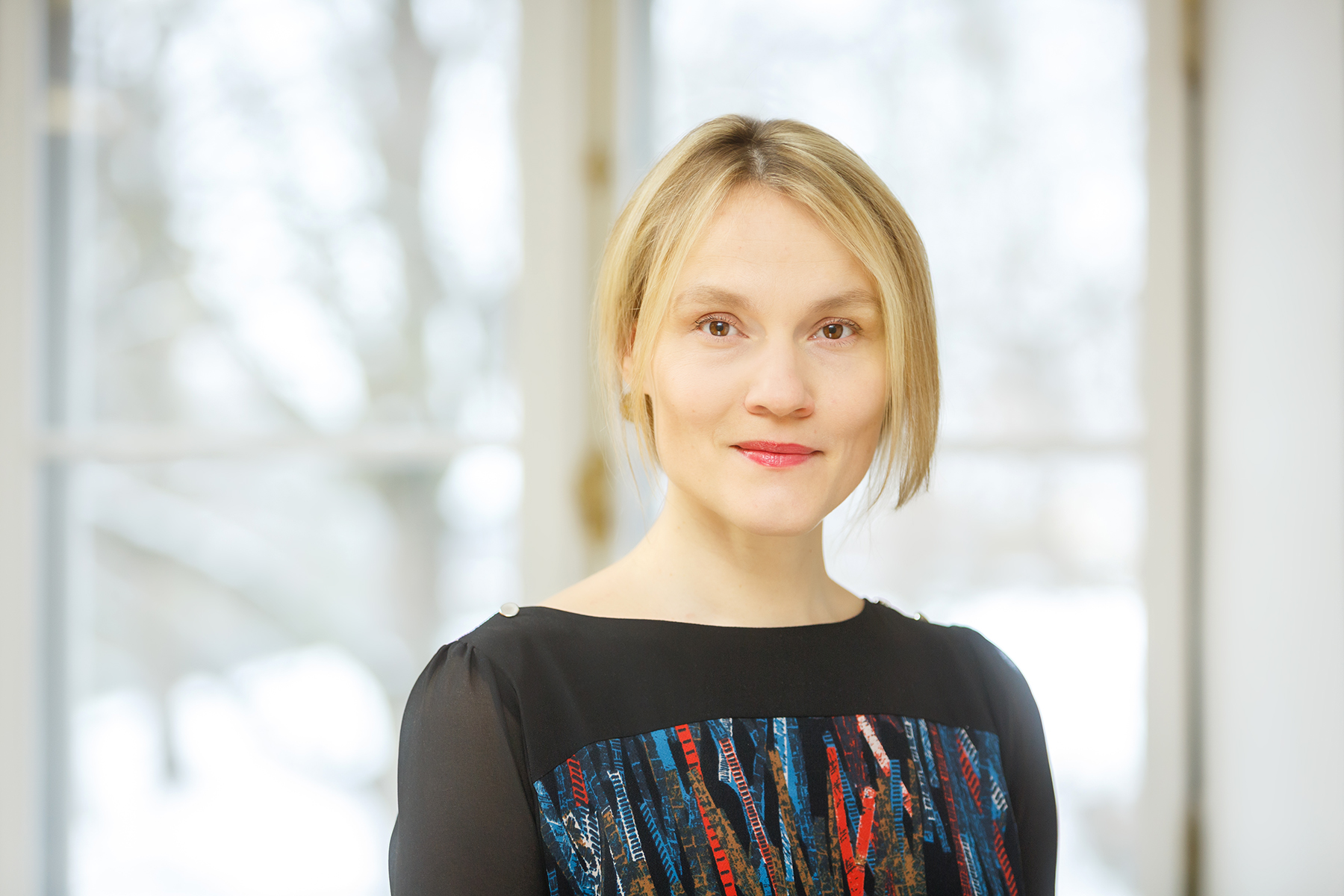
Over the past fifteen years, she has advised government leaders and politicians in more than forty countries in Central and Eastern Europe, South-Eastern Europe, Middle East, Central Asia, and Africa in public sector modernisation and digilatisation. She has a vast digital policy development experience as well as the execution of these strategic decisions. She has a hands-on experience in the design, development, and implementation of public e-services and online public participation initiatives.
Previously, she acted as the Executive Director of IGL, a research and consulting company specializing
in digital governance. She also served as the Programme Director at e-Governance Academy in Estonia, being responsible for the e-Democracy and the ICTs in Education Programme. At the Foresight Centre of the Parliament of Estonia, she looked at how technological trends could adhere public governance and digital economy. She has experienced the life of international and inter-governmental organisations such as the UNDP, OECD, UNESCO, but also academia.
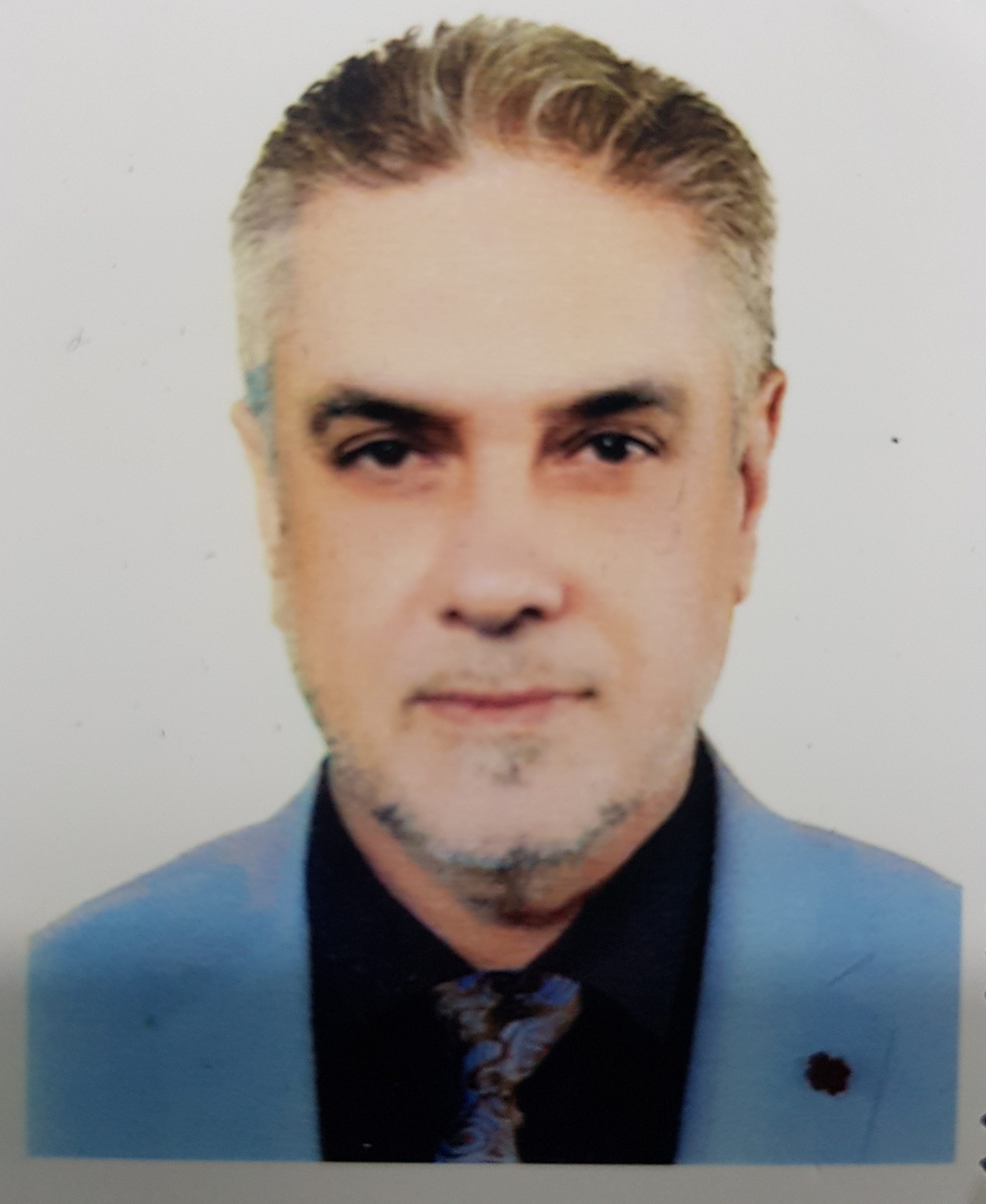
Educational attainment: Bachelor of Technology Engineering / University of Basra
Title / function level: Senior Deputy Minister of Communications for Technical Affairs
Ministry of Communications, Republic of Iraq
Languages: Arabic, English
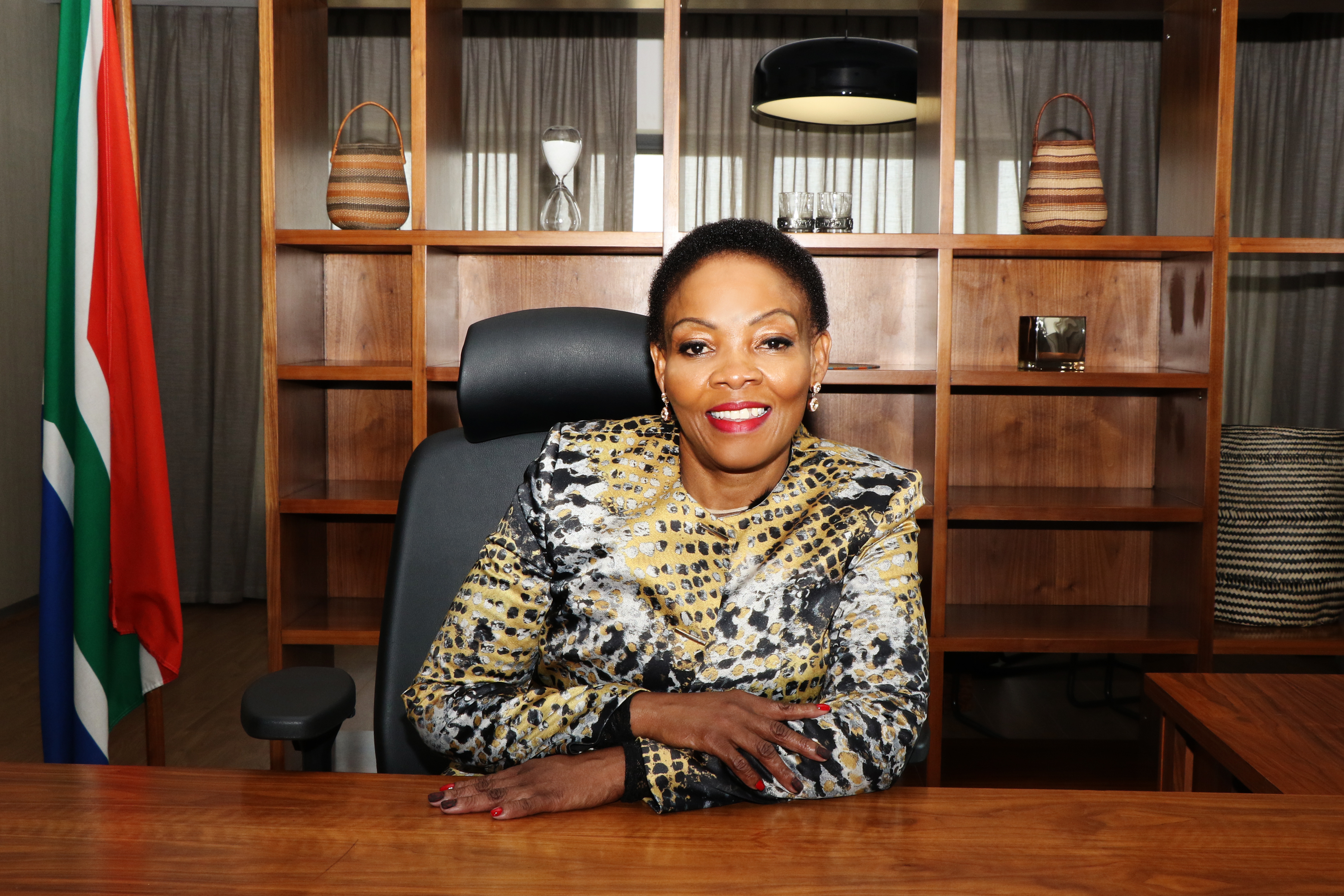
Ms Pinky Kekana was born in Bela-Bela. Kekana has completed a Bachelor of Arts Degree (specializing in Education and teaching). Kekana's experience as a secondary school teacher fuelled her passion for education and South African’s young people. She is committed to improving opportunities for young South African’s, from all walks of life.
She currently serves as the Deputy Minister of Communications and as someone from a rural town, Kekana understands and recognizes the vital importance of bridging the Digital divide between people living, working and travelling in regional and remote parts of the country and those in metropolitan cities.
Our society is rapidly moving towards using cutting edge technology and more people are getting access to the internet year on year. Kekana believes that rural South Africans should have access to 21st-century communications to run their businesses, complete their studies and connect with family and friends.
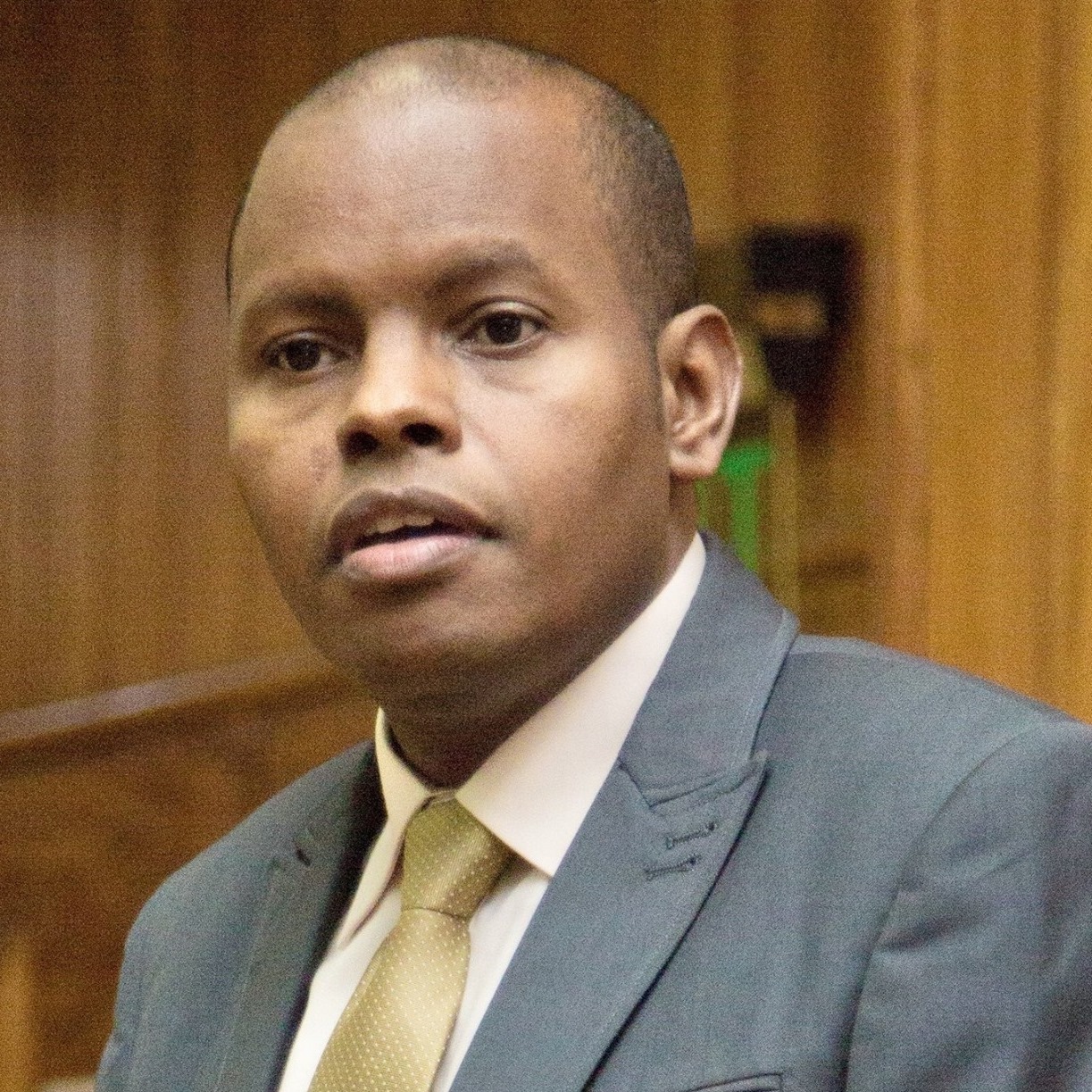
Dr. Isaias Barreto da Rosa is the CEO & Executive Chairman of the Board of the Multisectoral Regulatory Agency of the Economy (ARME), Cape Verde, after having served as the first ECOWAS Commissioner in charge of Telecommunications & Information Technologies, from February 2014 to February 2018.
He concluded his post-doc at Tallinn University, Estonia, addressing mobile access to digital libraries in digital divide environments. He holds an Advanced Studies Diploma and a Ph.D. degree (Hons) in Education and Human Development (University of Santiago de Compostela, Spain), a Master’s degree in Management Development (Euro-Arab Management School, Granada, Spain), and a bachelor degree in Computer Science (Faculty of Science, University of Lisbon, Portugal). Dr. Isaias Barreto da Rosa is a Cisco Academy instructor, by the University of Central England, United Kingdom, and Nelson Mandela Metropolitan University, South Africa.
Prior to joining the ECOWAS he worked as a Software developer at the Center for the Study of Information Problems at the Portuguese Catholic University, Portugal; researcher at Tallinn University, Estonia; professor at Jean Piaget University of Cape Verde for 13 years, where he also assumed several other responsibilities such as the head of the Department of Science and Technology, Director of the Technological Division; Director of the Digital Education Lab, Cisco Academy Manager, Microsoft IT Academy Manager, etc.
Dr. Isaias Barreto da Rosa was also a consultant for Cape Verdean Government and institutions and several international organizations. He has lectured in several countries and has dozens of scientific papers published in scientific journals and proceedings of international conferences.
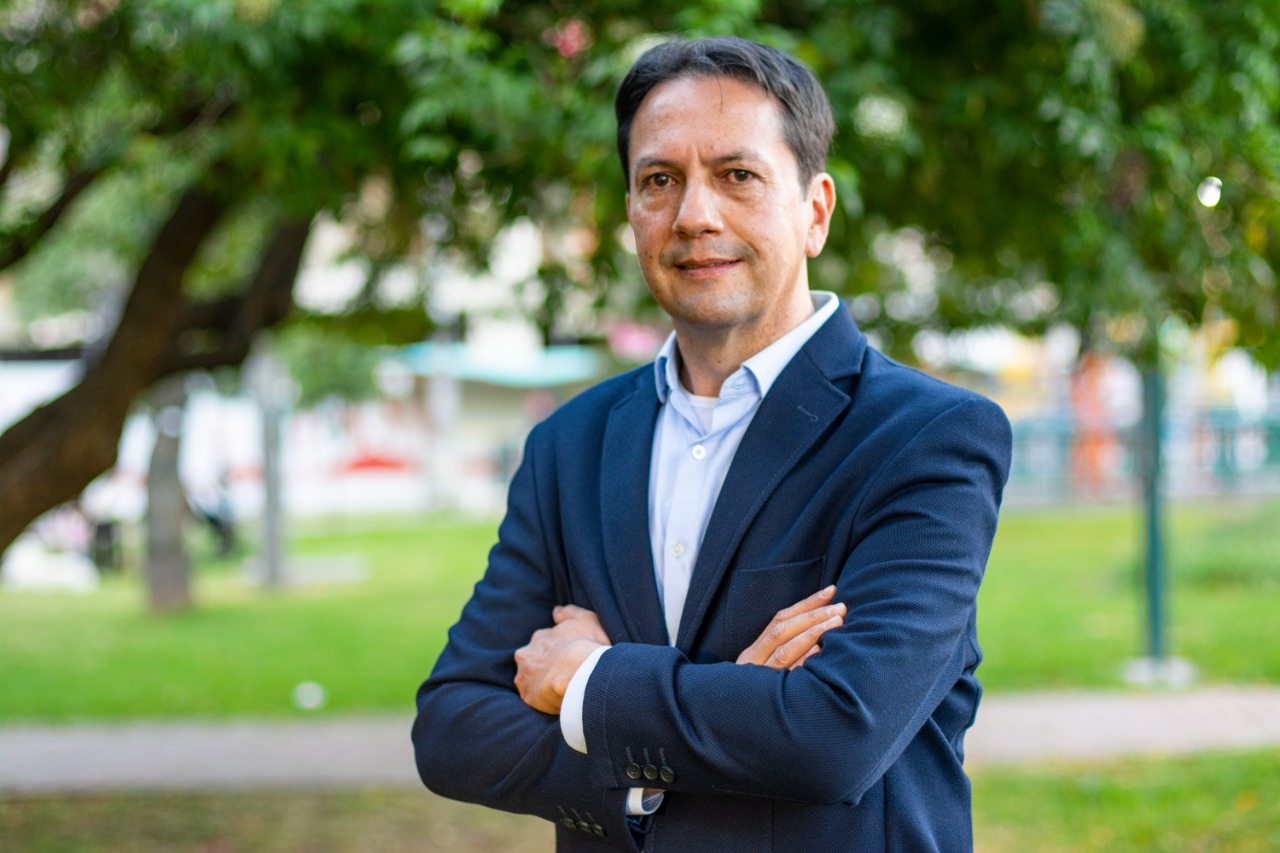
Nicolás Silva Cortés - Commissioner of Commission Session of Communications
He is an electronic engineer from the Pontificia Javeriana University, with a Master's Degree in Business Administration and Management and a Specialization in Marketing Management from the Rosario University. In his professional career, he served as advisor and Director of the Communications Industry of the Ministry of Information and Communication Technologies (MINTIC), as well as advisor and coordinator of the Industry Knowledge Center, of the Coordination of Postal Regulation and of the Coordination of Infrastructure Regulation of the CRC. He also worked for organizations such as the United Nations Development Program (UNDP) and the Organization of Ibero-American States (OEI).
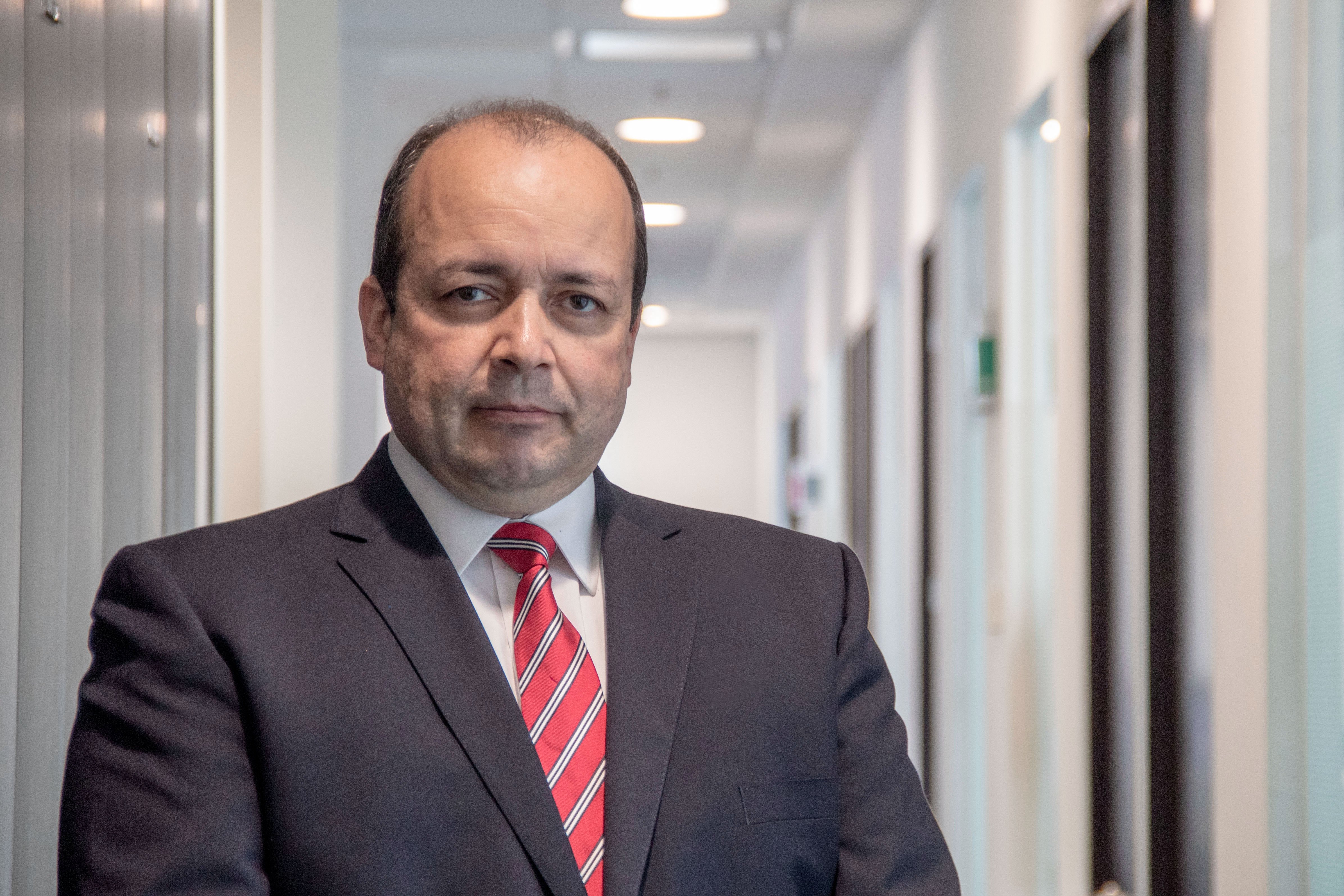
Ramiro Camacho Castillo was appointed Commissioner of the Federal Telecommunications Institute of Mexico (IFT) in March of 2019 for a period of nine years.
Commissioner Camacho has worked as an economist at the competition and telecommunications authorities of Mexico for the past twelve years. He was General Director of Economic Consulting at IFT and Deputy General Director of Economic Studies at the Competition Commission (COFECE). Previously, he was an Associated Professor at the University of Guadalajara for eleven years.
Commissioner Camacho holds a Bachelor’s Degree in Mathematics from the University of Guadalajara, and three master’s degrees: In Economics from the University of Wisconsin- Madison; in Operations Research from the National Autonomous University of Mexico (UNAM); and in Energy Economics from Scuola Superiore Enrico Mattei in Italy.
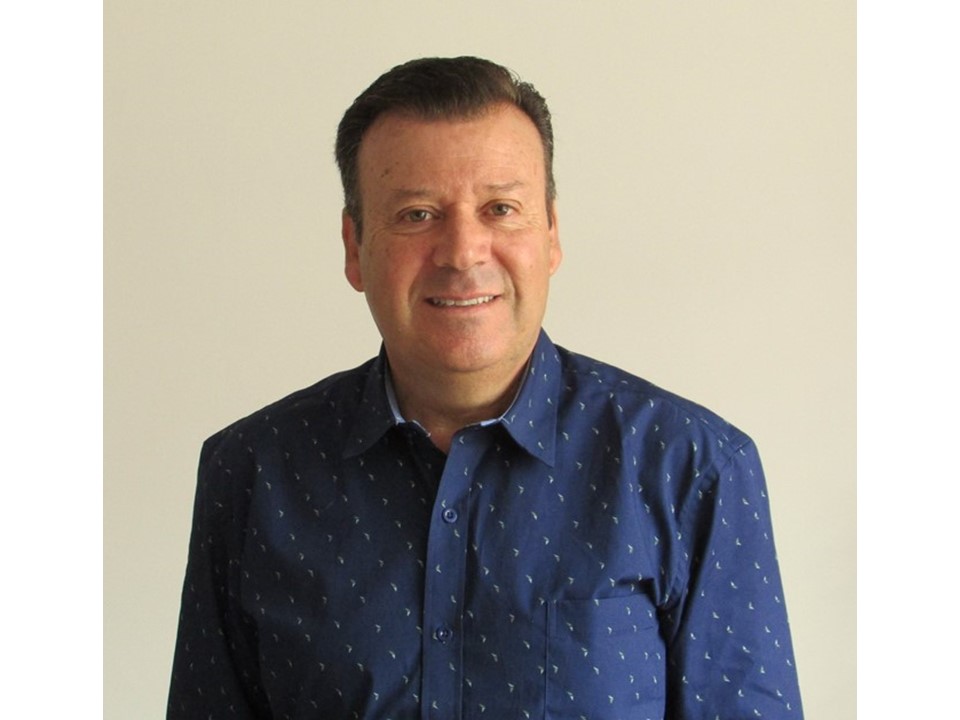
International speaker and coach certified by the International Coaching community of London, specialising in leadership and high-performance team coaching by the Haggai Institute in Singapore. Degree in Theological Studies from Trinity College, University of Bristol, England. Senior management consultant with more than twenty years of experience, creator of the executive workshop "The changes demanded by leadership in this new century".
Farid, is founder and CEO of the Center for Leadership and Business Development Abba Colombia based in Bogotá, Colombia; an organization highly recognized and qualified as number one for its corporate training process and executive coaching with Sanofi, Coldeportes, Banco de Occidente, fenalco and some other companies.
He is also president of the NGO - Fundación Abba Colombia, a non-profit organization that helps through education to children and families affected by the war in Colombia, with self-sustainable education projects throughout the country. This NGO is accredited by ECOSOC, United Nations, and in the process to be part of the International Humanitarian City in UAE, Dubai.
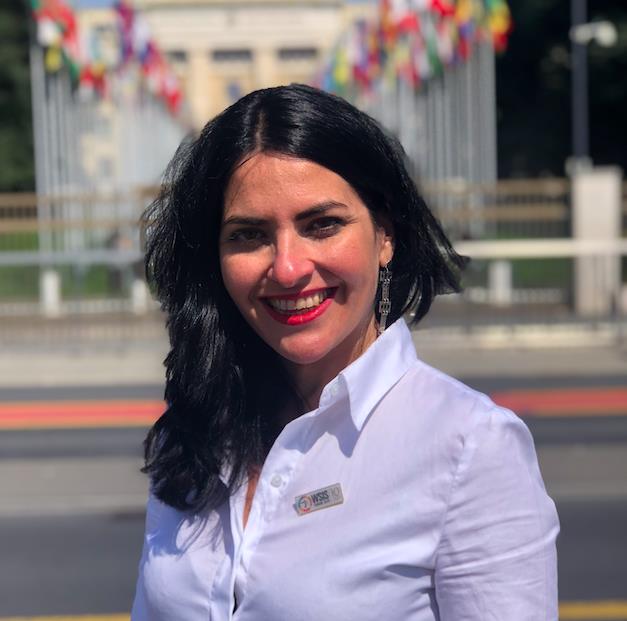
Social entrepreneur. Founder and current President of Fundación Cibervoluntarios, a non-profit organization that promotes the use and knowledge of new technologies as a means to alleviate social gaps, promote social innovation and generate citizen empowerment, are leading Europe’s growth "Europe's 100 digital champions".
In 2018 Yolanda was named as one of the 100 of COTEC, as specialist in the Fourth Sector. Yolanda was selected as one of the Top 100 women leaders in Spain, three times in 2016, 2012 and 2011, she has become one of the women in their honour hall of fame. She was also awarded in 2011 by Mía Magazine with the Mujeres Realesaward for innovation. In 2013 she was named one of the “Las Influyentes” for her leadership 2.0 by Madrid Woman Week and the Association Procom. In 2012, she was awarded a scholarship by the International Leadership Visitors Program of the Federal Government of the United States.
Twitter: @ciberyolanda
LinkedIn: https://www.linkedin.com/in/ciberyolanda/
-
 C1. The role of governments and all stakeholders in the promotion of ICTs for development
C1. The role of governments and all stakeholders in the promotion of ICTs for development
-
 C2. Information and communication infrastructure
C2. Information and communication infrastructure
-
 C3. Access to information and knowledge
C3. Access to information and knowledge
-
 C4. Capacity building
C4. Capacity building
-
 C5. Building confidence and security in use of ICTs
C5. Building confidence and security in use of ICTs
-
 C6. Enabling environment
C6. Enabling environment
-
 C7. ICT applications: benefits in all aspects of life — E-government
C7. ICT applications: benefits in all aspects of life — E-government
-
 C7. ICT applications: benefits in all aspects of life — E-business
C7. ICT applications: benefits in all aspects of life — E-business
-
 C7. ICT applications: benefits in all aspects of life — E-learning
C7. ICT applications: benefits in all aspects of life — E-learning
-
 C7. ICT applications: benefits in all aspects of life — E-health
C7. ICT applications: benefits in all aspects of life — E-health
-
 C7. ICT applications: benefits in all aspects of life — E-employment
C7. ICT applications: benefits in all aspects of life — E-employment
-
 C7. ICT applications: benefits in all aspects of life — E-environment
C7. ICT applications: benefits in all aspects of life — E-environment
-
 C7. ICT applications: benefits in all aspects of life — E-agriculture
C7. ICT applications: benefits in all aspects of life — E-agriculture
-
 C7. ICT applications: benefits in all aspects of life — E-science
C7. ICT applications: benefits in all aspects of life — E-science
-
 C8. Cultural diversity and identity, linguistic diversity and local content
C8. Cultural diversity and identity, linguistic diversity and local content
-
 C9. Media
C9. Media
-
 C10. Ethical dimensions of the Information Society
C10. Ethical dimensions of the Information Society
-
 C11. International and regional cooperation
C11. International and regional cooperation
-
 Goal 1: End poverty in all its forms everywhere
Goal 1: End poverty in all its forms everywhere
-
 Goal 2: End hunger, achieve food security and improved nutrition and promote sustainable agriculture
Goal 2: End hunger, achieve food security and improved nutrition and promote sustainable agriculture
-
 Goal 3: Ensure healthy lives and promote well-being for all
Goal 3: Ensure healthy lives and promote well-being for all
-
 Goal 4: Ensure inclusive and equitable quality education and promote lifelong learning opportunities for all
Goal 4: Ensure inclusive and equitable quality education and promote lifelong learning opportunities for all
-
 Goal 5: Achieve gender equality and empower all women and girls
Goal 5: Achieve gender equality and empower all women and girls
-
 Goal 6: Ensure access to water and sanitation for all
Goal 6: Ensure access to water and sanitation for all
-
 Goal 7: Ensure access to affordable, reliable, sustainable and modern energy for all
Goal 7: Ensure access to affordable, reliable, sustainable and modern energy for all
-
 Goal 8: Promote inclusive and sustainable economic growth, employment and decent work for all
Goal 8: Promote inclusive and sustainable economic growth, employment and decent work for all
-
 Goal 9: Build resilient infrastructure, promote sustainable industrialization and foster innovation
Goal 9: Build resilient infrastructure, promote sustainable industrialization and foster innovation
-
 Goal 10: Reduce inequality within and among countries
Goal 10: Reduce inequality within and among countries
-
 Goal 11: Make cities inclusive, safe, resilient and sustainable
Goal 11: Make cities inclusive, safe, resilient and sustainable
-
 Goal 12: Ensure sustainable consumption and production patterns
Goal 12: Ensure sustainable consumption and production patterns
-
 Goal 13: Take urgent action to combat climate change and its impacts
Goal 13: Take urgent action to combat climate change and its impacts
-
 Goal 14: Conserve and sustainably use the oceans, seas and marine resources
Goal 14: Conserve and sustainably use the oceans, seas and marine resources
-
 Goal 15: Sustainably manage forests, combat desertification, halt and reverse land degradation, halt biodiversity loss
Goal 15: Sustainably manage forests, combat desertification, halt and reverse land degradation, halt biodiversity loss
-
 Goal 16: Promote just, peaceful and inclusive societies
Goal 16: Promote just, peaceful and inclusive societies
-
 Goal 17: Revitalize the global partnership for sustainable development
Goal 17: Revitalize the global partnership for sustainable development
